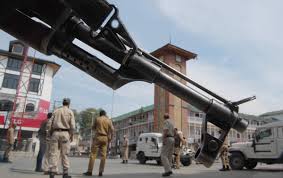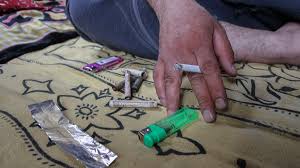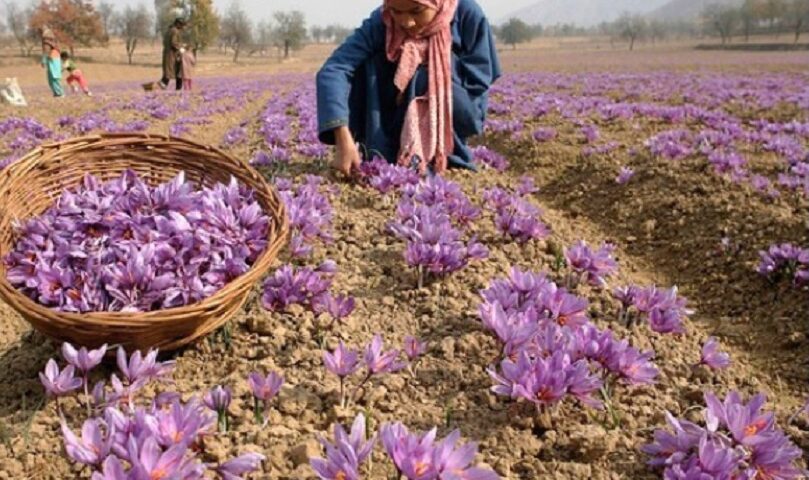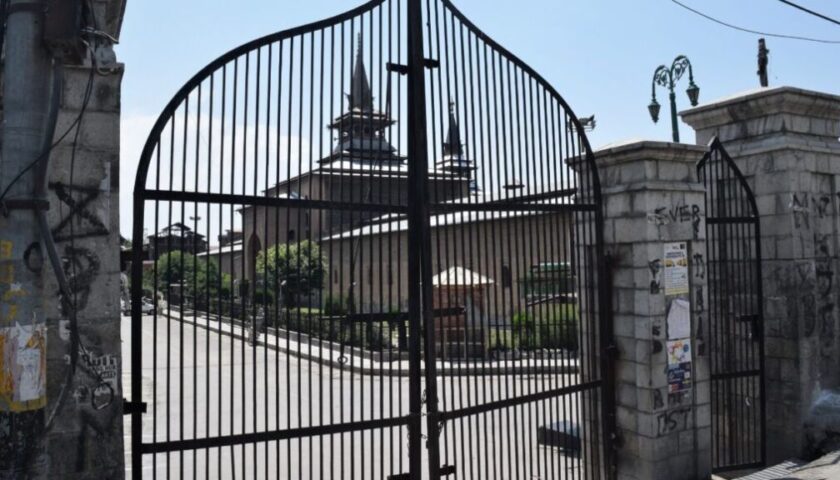 As the crisis in Kashmir has all possibilities to stretch until or beyond Eid-ul-Azha this year, the government is likely to impose strict restrictions in some parts of Srinagar and at other major towns of Kashmir valley to disallow any large congregational Eid prayers.
As the crisis in Kashmir has all possibilities to stretch until or beyond Eid-ul-Azha this year, the government is likely to impose strict restrictions in some parts of Srinagar and at other major towns of Kashmir valley to disallow any large congregational Eid prayers.
Top sources in the police and civil administration revealed to Kashmir Post that given the current situation, things might aggravate and “some elements might take undue advantage of the big gatherings on Eid prayers”.
“We are thinking that no large gatherings for Eid-ul-Azha prayers will be allowed on the day especially the ones at TRC (in Srinagar), at historic Eidgah where Mirwaiz Umar Farooq leads the prayers, at Aasaar Sharief, Dargah Hazratbal and at other mosques where large gatherings of people are usually expected,” a top police official said.
He said while a lot is still being discussed on it, there are maximum possibilities that the authorities would go ahead disallowing prayers at these key places as a “preventive measure”.
“There are maximum chances that people might throng to Lal-Chowk after offering prayers at TRC ground. We don’t want to let that happen during Eid,” said another official on condition of anonymity.
He added that the same decision may also be implemented in other major towns and district headquarters where large gatherings on Eid-ul-Adha are expected.
“There is least possibility of allowing people to offer Eid prayers at such places where there are maximum chances of violation of law and order,” the official said.
He, however said that there won’t be any restrictions on offering the Eid prayers in local Mohalla Eidgahs and other mosques.
Another senior official too said that the decision to disallow Eid-ul-Adha prayers might be reviewed depending upon the situation until that time. “If the same situation continued, then Eid-prayers will not be allowed at various Eidgahs and other places in the Valley,” he said.
The decision to prohibit Eid prayers may not come as a surprise to the masses since authorities have already disallowed seven consecutive Friday prayers in historic Jamia Masjid in Srinagar and many other centrally located mosques across several districts.
Kashmir valley and parts of Jammu continue to remain on boil with no let-up in the crisis since July 9, a day after the killing of Hizbul Mujahideen commander Burhan Wani, along with two other militants in a south Kashmir village.
Wani’s killing triggered instant protests across the Valley which later turned into a massive mass uprising. As many as 71 people have been killed and over 8000 injured. With protests, shut-down, curfew like restrictions and killings happening even on the 53rd day of the uprising, the chances of normalcy are grim.
Eid-Ul-Zuha with Restrictions; Administration toying with Ideas




